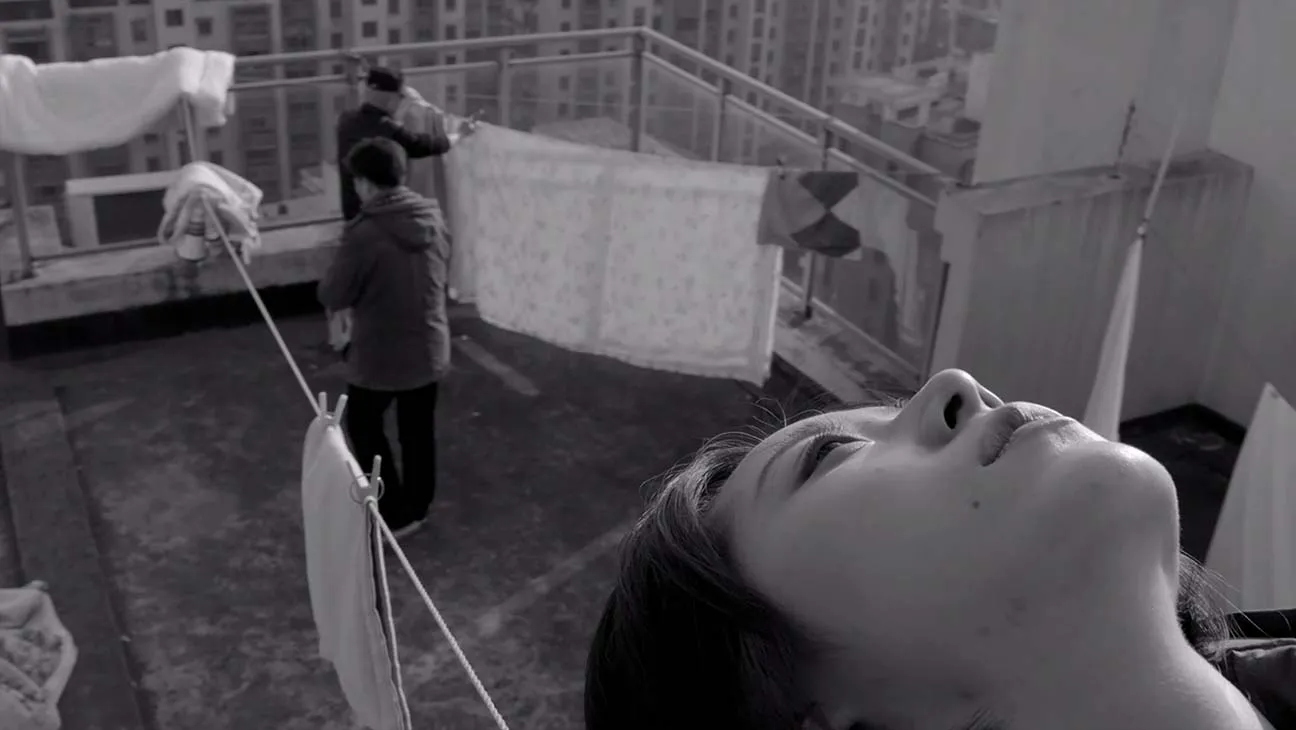In a famous 1923 speech, Lu Xun raised questions about the future of rebellious women escaping unreasonable marriages, his comments turning Henrk Ibsen’s character Nora into a symbol of feminism in China. Over a century later, Su Min has emerged as a contemporary figure of significant influence. In 2020, she left her abusive husband to embark on a solo road trip across the country. Now, her journey has gained significant traction, earning her five million followers across various platforms and over 1.5 billion views on social media posts, which has sparked important discussions about feminism.
Released on September 15, the film Like a Rolling Stone (出走的决心) delves into the struggles of its main character, the Su-inspired Li Hong (played by Silver Bear Best Actress Yong Mei), a mother trapped in an oppressive marriage. Directed by Yin Lichuan, the film highlights themes of female empowerment and generated substantial discussion during the Chinese Mid-Autumn Festival — particularly due to its all-female production team. Su’s story continues to resonate, inspiring ongoing conversations about women’s rights in contemporary society.
Su’s story in the first half of her life is ordinary. She grew up in a traditional family with three younger brothers in Henan province. During Su’s college entrance exams, her father left with her three younger brothers for higher salary in Henan, which left Su Min to face the exams alone in Chengdu (her family’s hometown in southwest China).
Unfortunately, Su failed the entrance exams. She described her marriage as a way to “run away from her original family,” yet she felt imprisoned by a life of repetitive housework and caring for other family members. Worse still, she also had a selfish and abusive husband — one who controlled finances, demeaned her, and physically abused her.
For years, Su Min suffered in silence, afraid to divorce because of societal expectations and concerns about her daughter’s future. At the age of 56, she finally decided to run away for a second time — by starting a road trip around China alone. In doing so, she stepped into a life different from that of most Chinese married women. She stopped living by others’ judgments and left her family behind.

Su’s story quickly resonated with many women. Some younger women saw reflections of their own mothers, while others recognized their own experiences within their marriages. Four years after her departure from home, Like a Rolling Stone was released. Through the film’s masterful use of sound, we hear the cacophony of voices in Li Hong’s life — her husband’s complaints, her daughter’s pleas for help, and even her grandson’s cries.
These layers of sound reflect the overwhelming pressure that leads to her diagnosis of depression. After her grandsons went to kindergarten, Li Hong finally uses her savings from her job in a supermarket to leave the family and start on her solo trip. The film stops there.
Through this story, Like A Rolling Stone shows the importance of self-empowerment for women trapped in oppressive situations. In traditional Chinese culture, women have long been trapped in the distorted gender role as domestic caregivers. They are expected to be obedient, gentle, and not too flashy — but still good-looking at the same time.
As a rare Chinese film centered on an ordinary middle-aged female protagonist, Like a Rolling Stone aims to push the boundaries of feminist discourse even further. In fact, its original title was Dear Mom (亲爱的妈妈), but when this was criticized by potential viewers, the filmmakers rapidly changed it to the current title.
The film also cleverly depicts the role of a daughter with imperfection and hesitation. At the peak moment when Li Hong’s daughter finally understands and supports her mother’s choice, the music used is “The Last Rose of Summer,” which also appeared in the 2017 American movie Three Billboards Outside Ebbing, Missouri, another film with feminist themes.

The film’s raw portrayal of the long-ignored suffering of middle-aged women has made some male viewers uncomfortable, resulting in negative reviews on Douban, a popular film review platform. However, the film doesn’t even exaggerate Su’s experiences.
Many viewers, regardless of gender, age, or class, found themselves reflecting on their own mothers or even their future selves after watching. Regardless of mixed reactions, Like a Rolling Stone continues to challenge social norms, presenting the possibility of an independent life for middle-aged women.
Outside of the film, Su has entered the fourth year of her journey — undeterred by both praise and harsh criticism. Su Min acknowledges that to fund her travels, she must maintain her social media presence, and thus exposure to public negative comments is inevitable.
Now, she continues her solo road trip with a new RV she and her daughter purchased together. Su films content for social media and her daughter edits at home. Having explored many cities in China, she is now filled with confidence and plans to embark on more overseas trips in the near future.
Banner image via Weibo.

















